
29 Jan, 2020
Flashback: The Thai who saved global Travel & Tourism from a much worse virus
Bangkok – As the 2019-nCoV coronavirus crisis enters its second month, there is much talk about the need to learn from previous crises and deal with it in an open and transparent way. Medical teams are being praised for their dedication and commitment. Public protection is the order of the day. Suddenly, Chinese tourists who were eagerly sought after as great spenders are being shunned. The bigger price is simply not worth paying.
This is a remarkable “behavioural change” over the first major health crisis, HIV/AIDS, which first surfaced in the 1980s and assumed near-pandemic proportions in the 1990s.
Then, too, medical uncertainty prevailed because the HIV/AIDS virus had never been heard of. Even when the scale of the threat became clear, the reaction of the travel & tourism industry was classic — sweep it under the carpet. It was impacting the image of destinations and affecting business. Couldn’t it be handled medically without all the detrimental publicity?
No, came the retort. HIV/AIDS was a direct result of risky human behaviour — men who have sex with men, unprotected heterosexual sex with prostitutes, having multiple sex partners, untested blood transfusions, sharing dirty drug needles. Unless all this risky behaviour was curbed post-haste, the disease would claim casualties by the hundreds of thousands.
The man who led this behavioural change in Thailand, the worst-affected country, was an Australian-educated Thai of half Scottish parentage, Mr Mechai Viravaidhya. He was running the Population and Community Development Association, an NGO set up to curb Thailand’s then burgeoning population growth rate. His primary methodology was to promote the use of condoms, then the safest and best means of birth control.
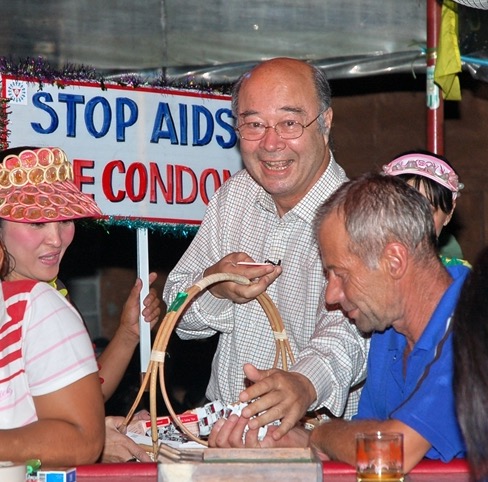
Blessed with a great sense of humour and communications skills, the charismatic Mr Mechai initiated some extraordinary publicity stunts to persuade men to use condoms — in fluent Thai and English. One popular photo-op was to turn up in Bangkok’s nightlife district and inflate condoms into balloons. The global media dubbed him Thailand’s Condom King, a brand-image he relished.
When the HIV/AIDS crisis erupted, the role of condoms changed. So did Mr Mechai’s calling. If unprotected sex with multiple partners was a primary means of transmission of the virus, then condoms offered some, if not total protection.
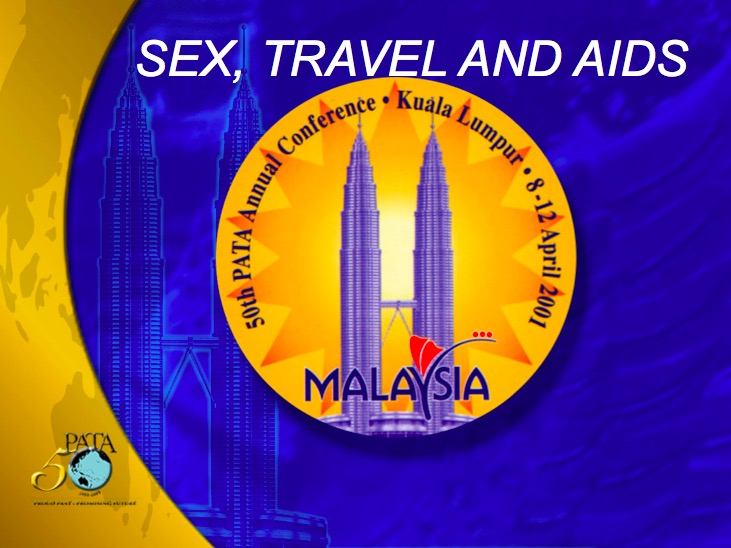
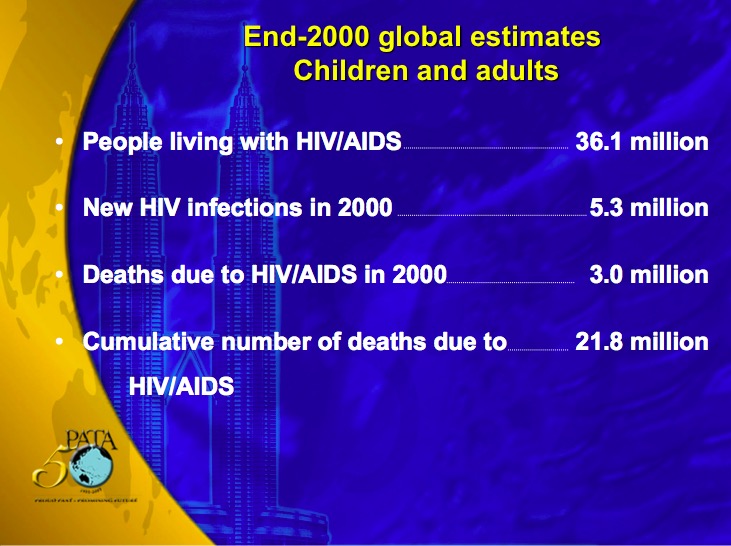
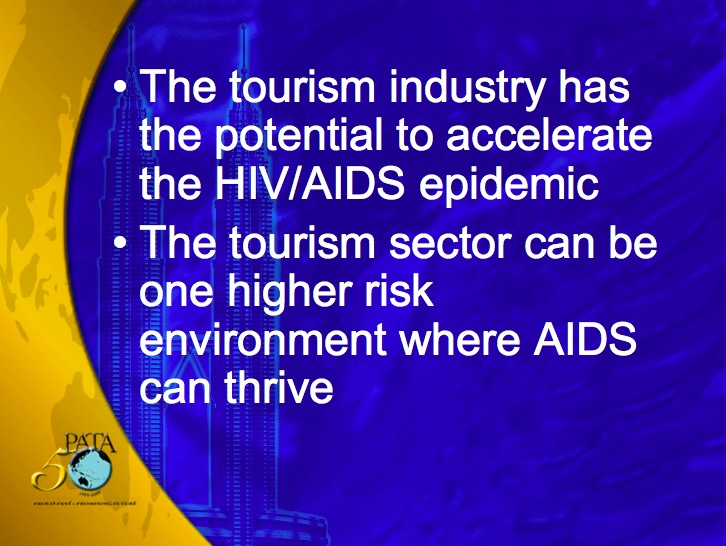
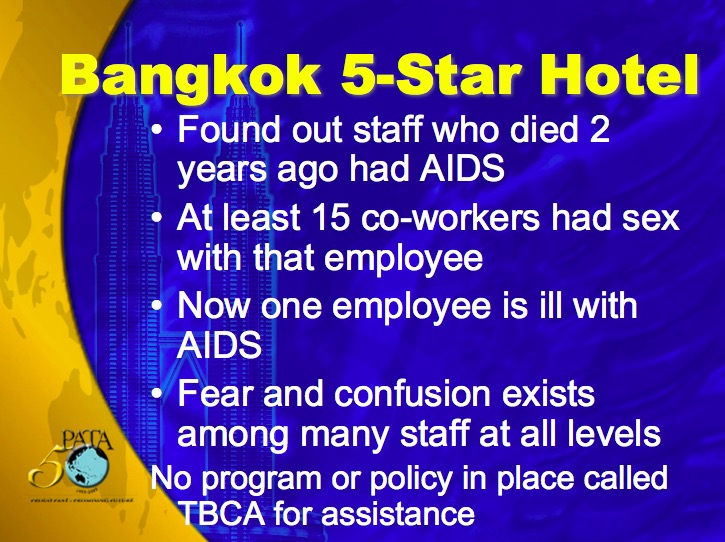
All the above slides are from a presentation by the Thai Business Coalition on AIDS at the 50th PATA annual conference in Kuala Lumpur, 2001
When the technocrat government of Prime Minister Mr Anand Panyarachun came to power in 1991, Mr Mechai was appointed a minister in charge of the Tourism Authority of Thailand.
Initially, the Thai tourism industry warmly applauded the move. Mr Mechai’s charisma and ability to command an audience was just what was needed to help fix Thailand’s “image” problem.
As it turned out, the industry was in for a bit of a nasty surprise. Mr Anand, an erudite businessman and former diplomat, had appointed Mr Mechai not just to promote travel and tourism but first to save the industry from itself.
Thailand’s sex and nightlife was a primary reason why HIV/AIDS was spreading within the country and abroad. Men infected after having unprotected sex in Thailand returned home to do the same with their boyfriends/girlfriends.
Mr Mechai was not a politician. He did not have to pander to the voters or polish his image. His job was to save lives, and the country.
At one travel industry event after another, he told flabbergasted audiences that if they did not become a part of the solution, they would not have a travel industry to sell in a few years because at the rate the virus was spreading, thousands of working-age Thais would soon be dead or infected.
He even harangued foreign audiences. His most classic quote was this to a group of British travel agents:
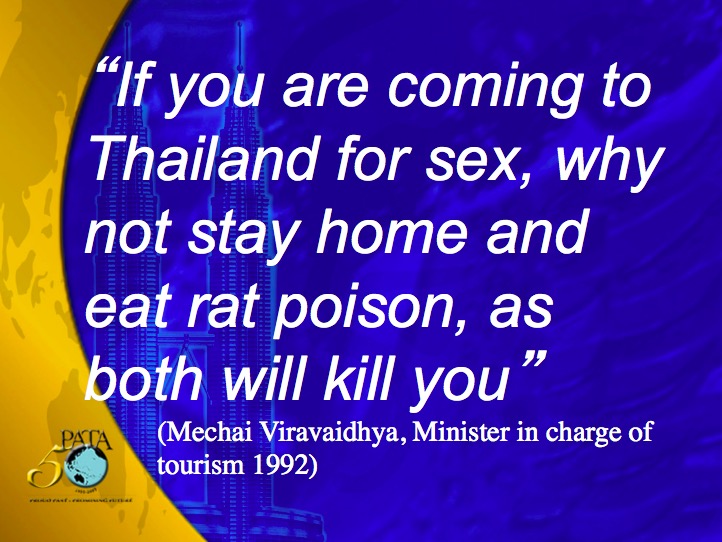
He also became the first to warn delegates attending the 1991 IMF/World Bank annual convention in Bangkok, by including this booklet in the delegate kit.
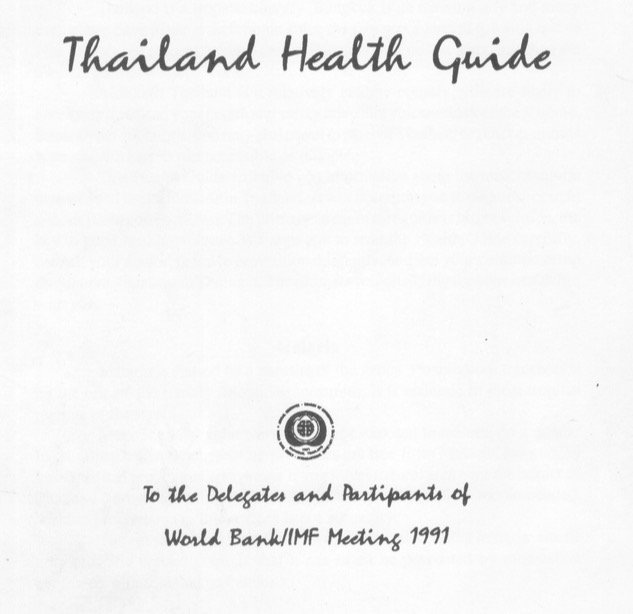
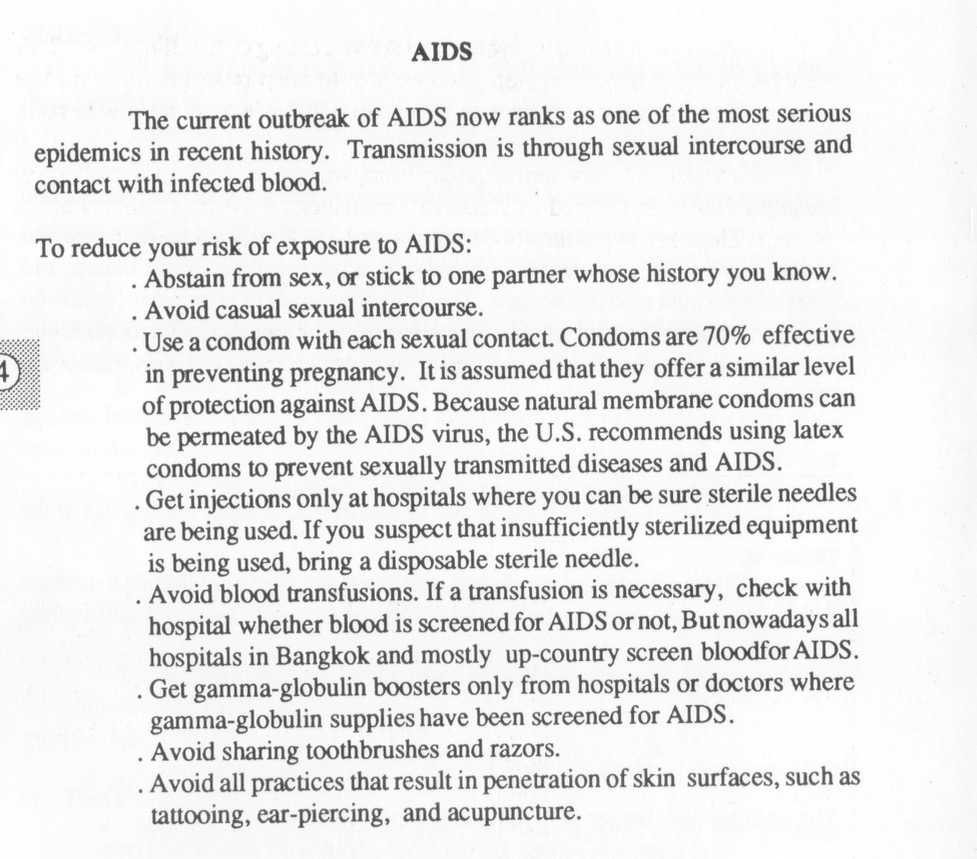
The travel industry could only look on in stunned silence. They could do nothing to rein in a very determined and committed individual who had made it clear that long-term national interests took priority over travel & tourism’s short-term commercial interests.
Mr Mechai’s strategy worked. The warnings were heeded. Public awareness soared. The threat was taken seriously. The fact that then famous people like the Hollywood star Rock Hudson and singer Freddie Mercury also succumbed to the disease added to the public shock-horror factor and galvanised global action.
Thailand is today recognised as one of the greatest success stories in bringing the HIV/AIDS pandemic under control. Mr Mechai went on to win a Magsaysay Award, one of Asia’s most prestigious recognition for public service.
I consider my reporting on the HIV/AIDS crisis to be the most important story of my career in travel journalism. It brought out the best and worst in the travel industry — while many cheered Mr Mechai, others privately abused him as a publicity-hound.
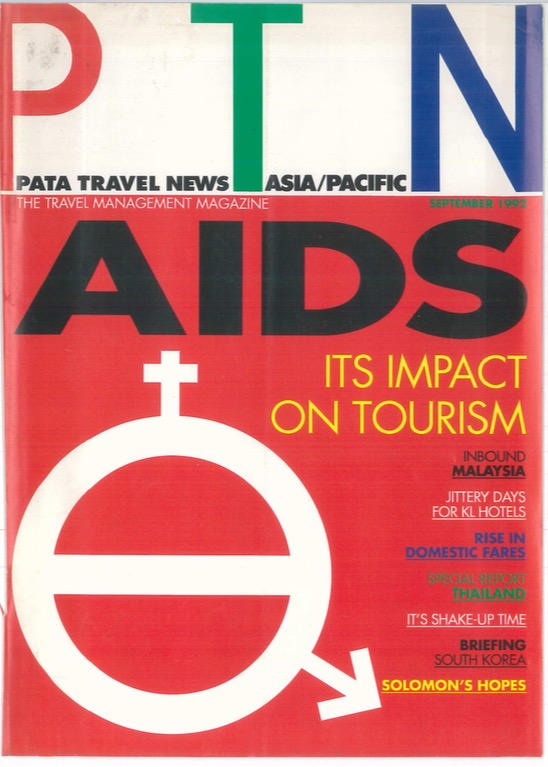
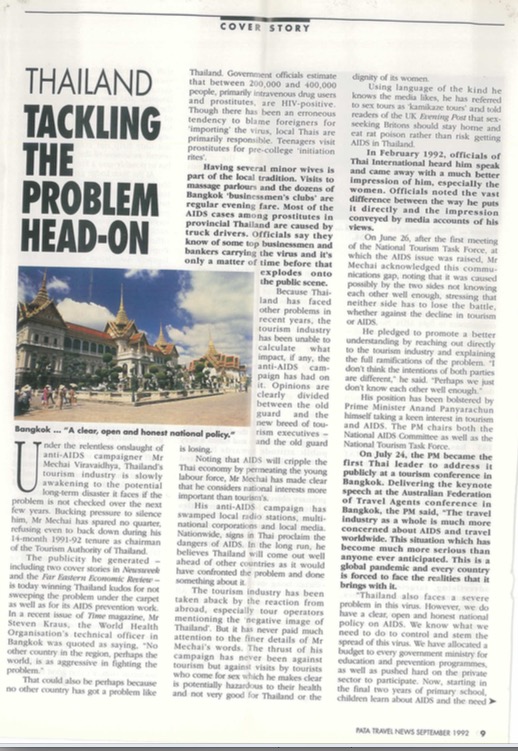
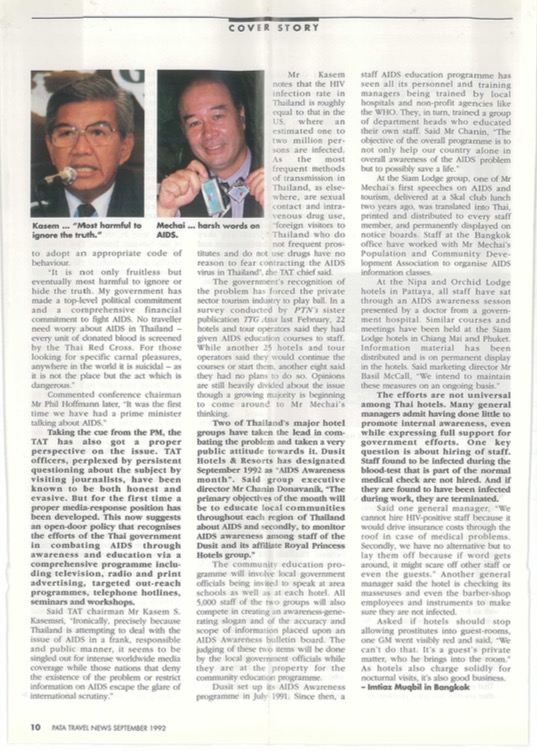
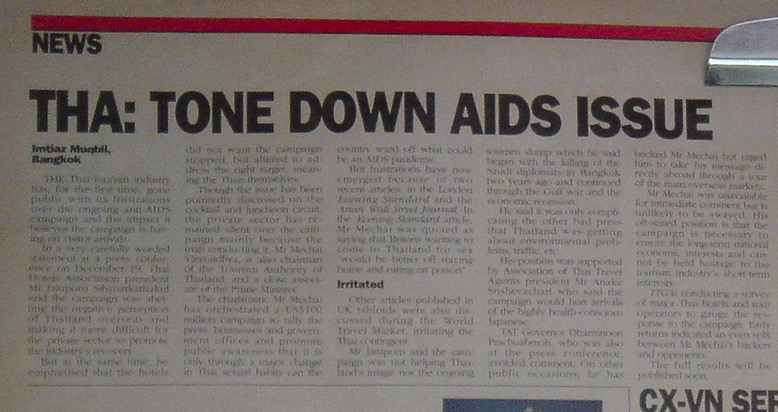
Today, as we go through the early stages of yet another health pandemic, I can confidently assert that the travel industry has learnt some lessons but has yet to learn many more.
It has learnt that living in denial and sweeping such threats under the carpet is not an option, that absorbing some short-term pain is necessary to avoid far more grievous long-term pain. It has learnt that honesty, transparency and straight-talk is vital and that the industry as a whole has to become a part of the solution.
However, it has not learnt to apply these lessons beyond the traditional comfort zones.
Today, the threat to travel & tourism, and the world at large, does not come just from medical, but human viruses — religious extremists, corrupt and unethical political and corporate leaders, organised crime syndicates, and many more. People who crave power and line their pockets by starting wars, fomenting socio-cultural and ethnic discord, lying, violating human rights, and nourishing cronyism and corruption.
In fact, their deliberate, calculated deviousness makes them far worse than the brainless medical pathogens.
When it comes to confronting these human viruses, the travel & tourism industry’s head goes straight back into the sand.
In a few weeks, the latest 2019-nCoV coronavirus crisis will fade, like HIV/AIDS, SARS, bird flu, MERS, etc. Hard decisions are being made, medical teams are working overtime and the entire public is on board. No-one is safe, regardless of caste, colour, creed, citizenship or cash-flow status.
But human viruses still pose an equally formidable threat.
As travel & tourism continues to fall victim, the industry may find it worthwhile to follow the Condom King’s lead. That may help prevent the next crisis, which is just around the corner — triggered most probably by a human virus.



Liked this article? Share it!